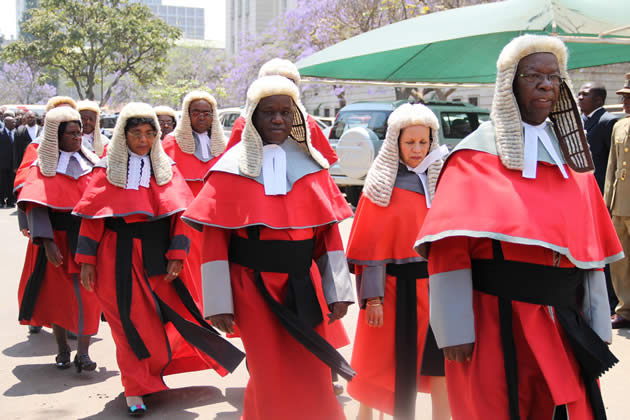Another court victory for employers
HARARE – In yet another court victory for employers, the Supreme Court recently ruled that it is the prerogative of the employer to decide where an individual in their employment should be deployed.

Nkomo, who in 2011 was lured from his base in the United States to be the general manager for Rainbow Towers Hotel and Conference Centre, took the hospitality concern to an arbitrator citing what he alleged was constructive dismissal.
The arbitrator ruled in his favour.
An appeal to the Labour Court against the arbitrator’s ruling by RTG was dismissed, prompting the disgruntled firm to take the matter to the Supreme Court.
On July 27, Justice Vernanda Ziyambi — sitting with Justices Paddington Garwe and Ben Hlatshwayo to constitute the Supreme Court — agreed to overturn a Labour Court ruling that had concurred with an arbitrator’s ruling, granted in favour of Nkomo.
The Supreme Court bench trio ruled that facts on the ground did not indicate that by transferring the perennially under-performing Nkomo — who had been ceaselessly warned to up his game — from the group’s operations in Harare to another of its outfits in Victoria Falls, the hotels group had acted in bad faith as to constitute an case for constructive dismissal, as the bitter former manager alleged.
Nkomo — who did not report to his new duty station on January 1, 2013 — cited his transfer from Harare to Victoria Falls’ A‘Zambezi River Lodge, on the same salary and other terms as before, as the group’s scheme to constructively dismiss him from employment.
In dismissing Nkomo’s case, Justice Ziyambi quoted a previous Supreme Court ruling thus:
“The following words by (Justice Misheck) Cheda in the Guruva case are applicable here: ‘It must be accepted that the right to transfer an employee from one place to another is the prerogative of the employer.
“It is the employer who knows better where the services of an employee are required. The employer’s discretion in determining which employee should be transferred and to which point of the employer’s operations is not to be readily interfered with except for good cause shown.
Good cause in the circumstances, while not easy to define, would include such matters as unfounded allegations, victimisation of the employee and any disadvantage.
“The reasons for transferring the appellant were given in its very first correspondence. It is not as if the reasons were made to counter the appellant‘s objections. Even if the reasons had not been given in the first correspondence to him, the reasons would still be valid as long as they are genuine.
“‘The employee who undertakes to work for an employer whose business is carried out at different places takes the risk of being sent to perform services for the employer wherever such services are required, unless the employment contract stipulates that he is to be employed and remain at a specific place only.”
The ruling effectively means that by not reporting for duty where his employer had deployed him to, Nkomo was guilty of not reporting for work as he was charged and was rightly dismissed.
The ruling comes at a time when the Supreme Court has just made another landmark judgment that enables employers to fire their employees on three months’ notice.
Another ruling that changed the course of labour relations was one which says the employer can withdraw benefits to an employee at any given time.
These rulings have led to current efforts to amend the labour laws in order to prevent employers from sacking their workers willy-nilly. This comes after more than 20,000 jobs had been lost in the wake of the Supreme Court’s landmark ruling. Financial Gazette






